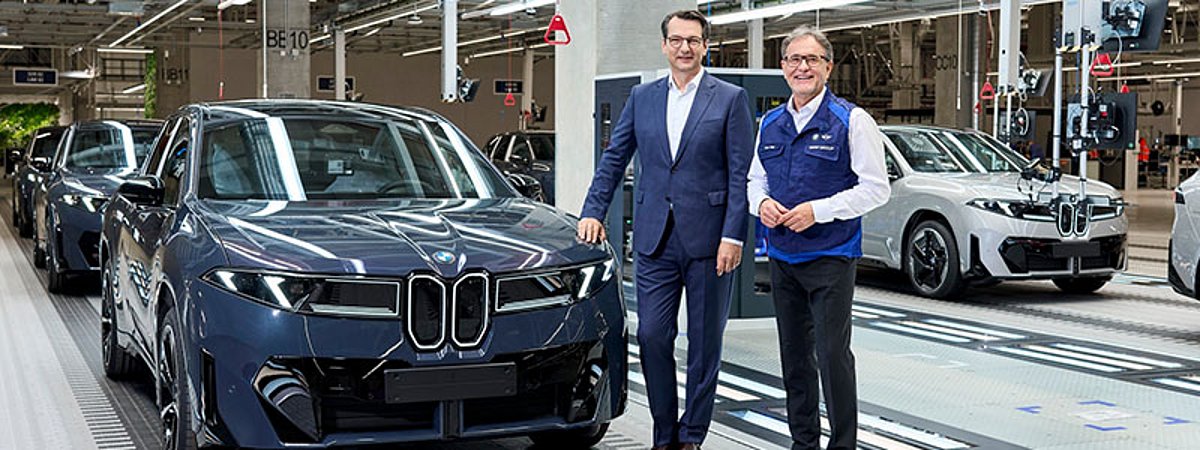New BMW paint shop reduces CO₂e emissions in vehicle production

The new BMW Group Plant Debrecen starts series production of the BMW iX3 at the end of October. The use of electricity from renewable energies instead of gas in the paint shop makes a significant contribution to reducing CO₂e emissions in production.
The paint shop at BMW Group Plant Debrecen is the central factor for a significant reduction of the CO2e footprint in the series production of the new BMW iX3. In total, around 80kg of CO₂e (Scope 1/2 emissions) are emitted in the production of the BMW iX3, including CO₂e emissions from the Debrecen plant and the production of in-house parts at other BMW Group locations, such as components in Landshut. This corresponds to a reduction of around two thirds compared to the production of previous BMW derivatives. Looking at the values for the Debrecen plant alone, the CO₂e emissions of the Debrecen plant for the production of a vehicle including a high-voltage battery are reduced by around 90 percent to around 34 kg CO₂e (at full capacity and compared to other BMW Group locations).
Vehicle paint shop with electricity instead of gas
Paint shops are usually operated with gas in order to achieve the required high temperatures of up to 180 degrees Celsius. The Debrecen plant is the first BMW Group automotive plant to be supplied exclusively with electricity from renewable energy sources during normal operation, i.e. without the use of fossil fuels such as oil or gas. Due to its high energy requirements, the paint shop also plays a major role in the Debrecen plant's significantly lower CO2e emissions. In the paint shop alone, the use of electricity from renewable sources ensures that emissions are reduced by up to 12,000 tons of CO2e annually. Around a quarter of the annual electricity requirement is sourced from the 50-hectare photovoltaic system on the plant premises. Surplus solar energy generated on non-working days, for example, is buffered in a 1,800 m³ thermal storage facility with a capacity of 130 MWh.
Energy recovery in the paint shop
An energy recovery system is also used in the paint shop. The so-called "heat grid" was successfully implemented in the planning of the new paint shop and achieves additional energy savings of up to ten percent. The innovative concept combines several measures for efficient energy recovery from the compressed air supply, the drying ovens and the refrigeration systems. The waste heat is then used to preheat the water circuit. In addition, there is a thermal storage tank with a volume of 1,800 m³ of water and a capacity of 130 MWh. It is used to store surplus energy from the photovoltaic system during off-peak periods to cover power peaks in the form of heat. "The start of series production of the BMW iX3 marks the beginning of a new era in automobile production. We have planned and built our new plant in Debrecen entirely according to our iFactory target image. Digital from the start, the plant offers a new dimension of efficient production without the use of fossil fuels," says Milan Nedeljković, Member of the Board of Management of BMW AG responsible for Production.
